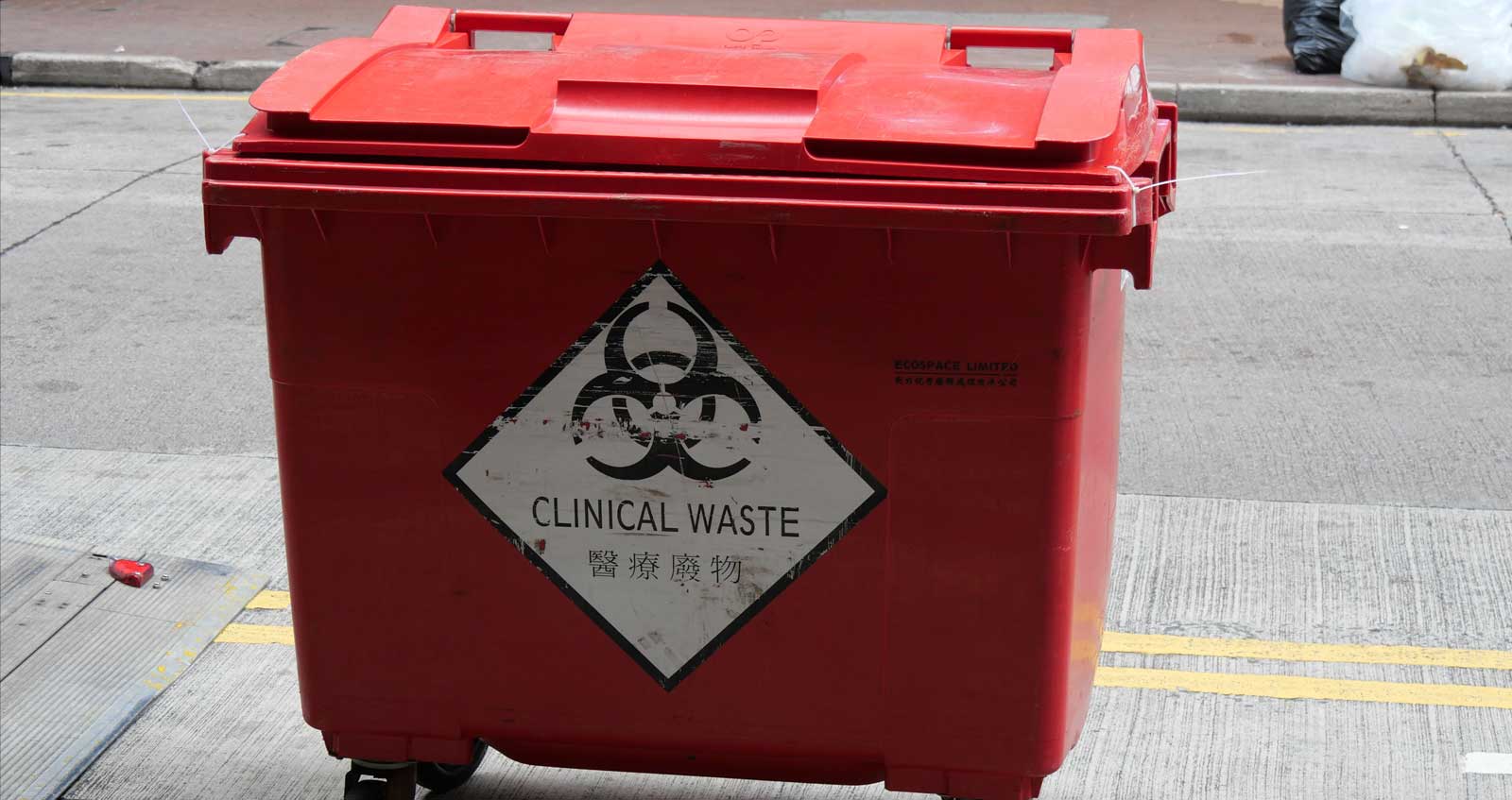The Importance of Correct Garbage Disposal Practices
The administration of waste is an important aspect of ecological stewardship that commonly goes unnoticed in our lives. Correct waste disposal practices are not just a matter of benefit but are essential for safeguarding our environments and public health and wellness. From the effects of incorrect garbage disposal on our setting to the long-lasting effects for future generations, the value of embracing sustainable waste administration methods can not be overstated. By checking out the environmental influence of careless waste disposal, the advantages of recycling efforts, and the value of community involvement in waste decrease initiatives, a much deeper understanding of why appropriate garbage disposal techniques are critical arises.
Ecological Influence of Improper Disposal
Improper disposal of waste postures a significant risk to the atmosphere because of its damaging results on ecological communities and human health. When waste is not correctly handled, it can cause air pollution of the soil, water, and air, triggering damage to different plant and animal species. click here. Chemicals and toxic substances from incorrectly disposed waste can permeate right into the ground, infecting groundwater resources and affecting the health of both wildlife and humans
Moreover, the build-up of waste in land fills generates greenhouse gases like methane, contributing to climate modification and worldwide warming. Incorrect disposal methods likewise cause littering, which not just weakens the visual worth of the setting but can also hurt wildlife through consumption or complication.
To mitigate these ecological influences, it is critical for neighborhoods and individuals to adopt correct garbage disposal methods such as recycling, composting, and liable unsafe waste disposal. By taking these actions, we can assist protect ecosystems, maintain all-natural resources, and safeguard human health for future and present generations.
Benefits of Recycling Programs
Frequently taking part in recycling programs uses numerous advantages for both the environment and culture in its entirety. Among the vital benefits of recycling is the conservation of natural deposits. By reusing products such as paper, glass, plastic, and steel, much less resources require to be removed from the planet, resulting in decreased logging, mining, and drilling activities. This conservation of resources not only helps in preserving environmental balance however additionally adds to lasting growth.
Moreover, recycling plays an essential duty in minimizing power intake and greenhouse gas discharges. The production of products from recycled materials usually requires much less energy compared to manufacturing from virgin resources - medical waste disposal. Consequently, the carbon footprint connected with the manufacturing process is considerably decreased, assisting in the fight versus climate change
Additionally, recycling programs produce job opportunities in the reusing sector, promoting financial development and social welfare. By urging the recycling and reuse of materials, these programs support a circular economic situation that reduces waste generation and makes best use of source efficiency, ultimately resulting in a cleaner, greener future for generations ahead.
Contaminated Materials Monitoring Standards
Carrying out effective contaminated materials monitoring standards is critical for decreasing environmental and health and wellness risks related to the incorrect disposal of unsafe materials - click here. Proper handling, therapy, and disposal of contaminated materials are necessary to avoid contamination of dirt, water sources, and air
One key guideline appertains labeling of hazardous waste containers to make sure safe handling and transport. Additionally, centers need to comply with stringent storage demands to stop leakages, spills, or crashes that might jeopardize human health and wellness and the setting. Routine training programs for staff members on dangerous waste management methods are additionally important to ensure compliance with guidelines and advertise a culture of safety.
Furthermore, contaminated materials should be set apart based on its buildings to avoid chain reactions that could lead to unsafe circumstances. Carrying out a thorough waste radar can aid keep an eye on the movement of hazardous materials from generation to disposal, guaranteeing openness and responsibility. By adhering to these standards faithfully, organizations and industries can contribute to a safer and cleaner setting for present and future generations.
Neighborhood Participation in Waste Reduction
To properly resolve the ecological and health dangers associated with dangerous waste monitoring, engaging the area in waste decrease initiatives is extremely important. Community participation plays an important role in promoting lasting waste monitoring methods and fostering a culture of ecological duty. By enlightening homeowners about correct waste partition, recycling, and composting methods, areas can substantially minimize the quantity of waste sent out to garbage dumps, therefore reducing ecological air pollution and preserving natural resources.
Neighborhood participation in waste reduction programs also helps in elevating understanding regarding the value of waste minimization and encourages individuals to take on eco-friendly routines in their every day lives - medical waste removal. Joint initiatives between neighborhood authorities, waste administration companies, and area members can cause the application of effective waste decrease methods customized to the particular demands of each neighborhood or town
Moreover, community moved here involvement cultivates a feeling of possession and responsibility among residents, equipping them to take proactive steps in the direction of lowering waste generation and promoting a cleaner, healthier setting for existing and future generations. By collaborating towards common waste decrease objectives, neighborhoods can make a considerable effect on alleviating the negative effects of improper garbage disposal techniques.

Future of Sustainable Waste Practices
The evolution of sustainable waste practices is critical for advancing ecological stewardship and resource preservation in the coming years. As the international populace proceeds to expand, so does the quantity of waste generated (medical waste removal). Typical waste disposal approaches, such as landfilling and incineration, are no more lasting in the long-term because of their considerable ecological impacts. Moving forward, the future of sustainable waste practices depends on welcoming a round economy approach, where resources are recycled, recycled, or repurposed to lessen waste generation.
Technical innovations play a key role in shaping the future of sustainable waste methods. Advanced waste sorting and reusing innovations can assist enhance the effectiveness of waste administration processes, permitting for the healing of important resources from waste streams. Additionally, the fostering of biodegradable products and composting approaches can help in reducing the quantity of organic waste winding up in landfills, thereby minimizing greenhouse gas exhausts.
In addition, advertising consumer awareness and education on correct waste partition and disposal methods is important for driving behavioral adjustment in the direction of sustainability. By cultivating a society of waste recycling, reduction, and reuse, neighborhoods can collectively add to a cleaner and healthier setting for future generations.

Verdict
Finally, correct waste disposal techniques are essential for decreasing environmental effect and promoting sustainability. By carrying out reusing programs, managing contaminated materials properly, and encouraging neighborhood involvement in waste decrease efforts, we can function in the direction of a cleaner and healthier atmosphere. It is necessary for individuals, companies, and federal governments to focus on lasting waste techniques for the future health of our earth.

From the repercussions of improper waste disposal on our environment to the lasting implications for future generations, the value of taking on lasting waste administration practices can not be overstated. By discovering the ecological effect of reckless waste disposal, the advantages of recycling campaigns, and the relevance of neighborhood interaction in waste reduction initiatives, a much deeper understanding of why proper waste disposal practices are vital arises.
By informing residents concerning appropriate waste segregation, reusing, and composting techniques, areas can substantially decrease the amount of waste sent out to garbage dumps, thereby decreasing ecological pollution and preserving natural sources. (click here)
Relocating onward, the future of lasting waste practices lies in embracing a circular economy method, where resources are reused, recycled, or repurposed to minimize waste generation.
Advanced waste sorting and reusing technologies can help improve the performance of waste monitoring procedures, permitting for the healing of useful resources from waste streams.
Comments on “Ease at Your Doorstep: Situating Reliable Medical Waste Removal Near Me”